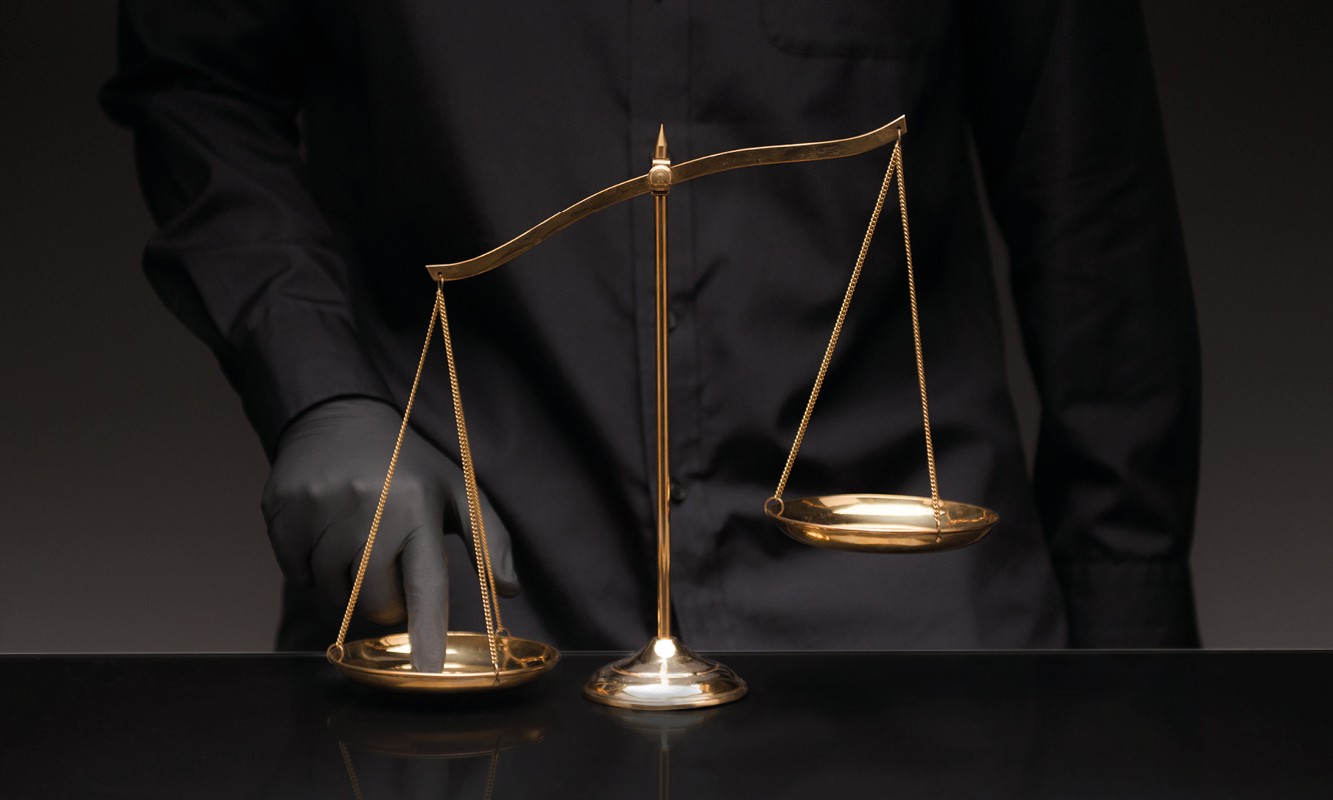Beyond Recusal: Strategies for Ensuring Judicial Impartiality in High-Profile Cases
Judicial impartiality is the cornerstone of a fair and just legal system. The twin principles of natural justice – hear the other side (audi alterem partem) and that no one should be a judge in his own cause (nemo judex in causa sua) is fundamental to the rule of law. They are so fundamental that any decision reached without their conjunctive application is considered a nullity in law. These principles are recognised by the Constitution of the Federal Republic of Nigeria 1999 (As Amended). Section 36(1) of the Constitution provides as follows:
“In the determination of his civil rights and obligations including any question or determination by or against any government or authority, a person shall be entitled to fair hearing within a reasonable time by a court or other tribunal established by law and constituted in such a manner as to secure its independence and impartiality”.
In high-profile cases, where political, social, and economic pressures are immense, maintaining public confidence in judicial integrity is paramount. Recusal, the voluntary or compelled withdrawal of a judge from a case due to potential bias, is an essential mechanism for preserving fairness.
The independence of the courts and impartiality of judges are closely linked, as they ensure public trust in the justice system. A judge’s impartiality is crucial, and a party to a case doesn’t need to prove actual bias to request the judge’s recusal. Instead, they only need to demonstrate a likelihood of bias, based on the judge’s connection to the case, its subject matter, or the parties involved.
The Supreme court in the case of Okoebor v. Police Council stated thus “In law, if a party raises objection as to the likelihood of bias on the part of the Judge trying a case, it is safer and more in the interest of justice for the Judge to refuse taking the matter, unless it is clear that the party is raising the objection qua opposition lacking merit and is designed to delay the court process or an outright abuse of the judicial process”.
However, recusal alone is not enough to safeguard judicial impartiality, particularly in cases of significant public interest.
This article explores practical strategies for strengthening judicial impartiality in high-profile cases, addressing legal, institutional, and procedural frameworks that can reinforce public trust in the judiciary.
1. Strengthening Recusal Procedures
Recusal is a necessary safeguard, but its effectiveness depends on clear and enforceable procedures. Nigeria, like many jurisdictions, lacks explicit statutory provisions detailing the recusal process, leading to ambiguity and potential manipulation. The following reforms can enhance the recusal framework:
a. Codification of Recusal Guidelines
A well-defined legal framework should be established to outline:
- Grounds for recusal, including financial interest, personal bias, or conflict of interest.
- A standard procedure for judges to declare conflicts of interest at the onset of a case.
- The process for reassigning cases when a judge steps down.
b. Independent Review of Recusal Requests
Instead of allowing judges to solely determine their own disqualification, an independent judicial panel should assess recusal motions to prevent subjective or inconsistent decisions. This panel could be composed of senior judges, legal scholars, and ethics experts to ensure impartiality.
c. Consequences for Ignoring Recusal Orders
A judge’s decision to step down or recused from a case should not be subject to administrative override but rather reviewed by a superior court.
2. Transparent Case Assignment Mechanisms
The discretionary power of the Chief Judge to assign or reassign cases should be regulated to eliminate the perception of favoritism or bias. In high-profile cases, the following should apply:
- Randomized Case Allocation: A lottery-style system should be introduced to assign cases to judges, to prevent manipulation.
- Justification for Reassignments: Any decision to return a case to a previously recused judge should be supported by a publicly available legal rationale.
3. Strengthening Judicial Independence
High-profile cases often involve political or economic interests that can exert undue influence on judicial officers. Strategies to insulate the judiciary from external pressures include:
a. Security of Tenure and Protection from Political Interference
Judges should have strong legal protection against removal or political intimidation. Judicial appointments and disciplinary actions should be overseen by an independent judicial council rather than executive or legislative bodies.
b. Adequate Funding and Remuneration
A financially independent judiciary is less susceptible to external influence. The judiciary should have control over its own budget to prevent financial dependence on the executive branch.
c. Protection from Public and Political Pressure
Media coverage and public opinion can shape judicial decision-making, particularly in politically sensitive trials. While transparency is important, certain measures can shield judges from undue pressure including:
- Restricting public commentary from political officeholders on ongoing cases.
- Implementing sub judice rules to prevent prejudicial public statements.
- Providing psychological and professional support to judges handling high-pressure cases.
4. Strengthening the Appeals Process
A fair and accessible appeals system is crucial to correcting judicial errors and reinforcing impartiality. The appeals process should be:
- Expedited for High-Profile Cases: Justice delayed is justice denied. Courts should prioritize appeals in politically sensitive cases to prevent prolonged legal uncertainty.
- Accessible to Both Parties: Both prosecution and defense should have equal rights to challenge procedural irregularities, including violations of recusal orders.
5. Judicial Ethics and Continuous Training
Judicial officers must undergo regular training on ethics, bias awareness, and the impact of public perception on judicial integrity. A robust judicial code of conduct should emphasize:
- The duty to avoid not only actual bias but also the appearance of bias.
- Best practices for handling politically sensitive cases.
- The importance of maintaining judicial independence despite public scrutiny.
6. Public Confidence and Judicial Transparency
The courts are popularly professed to be the last hope of the common man and therefore public trust in the judiciary is crucial for the legitimacy of court rulings. If a judge is accused of bias, the court considers whether a reasonable person would think it likely that the judge unfairly favoured one side.
In Babarinde v. State, the Supreme Court opined thus, “In a case where a Judge is accused of bias either during the course of proceedings or after the delivery of judgment, the court would be guided by the circumstances from which a reasonable man would think it likely or probable that the Judge would, or did, favour one side unfairly at the expense of the other. The court will not enquire whether he did, in fact, favour one side unfairly. Suffice it that reasonable people might think he did. The reason is plain enough. Justice must be rooted in confidence; and confidence is destroyed when right-minded people go away thinking: “The Judge was biased”. [The Secretary Iwo Central L.G. v. Adio (2000) 8 NWLR (Pt. 667) 115 referred to.]…”
The following measures can enhance transparency and confidence in judicial proceedings:
- Live Broadcast of High-Profile Trials: Ensuring proceedings are accessible to the public can prevent misinformation and demonstrate judicial neutrality.
- Publication of Judicial Rulings: Court decisions, including recusal orders, should be published with detailed explanations to foster accountability.
- Engagement with Civil Society Organizations: Judicial watchdogs and legal experts should be encouraged to review high-profile cases and provide independent assessments of judicial conduct.
Conclusion
Judicial impartiality is fundamental to the integrity of any legal system, particularly in high-profile cases where political and social tensions run high. While recusal is a necessary tool for addressing conflicts of interest, it is insufficient on its own to guarantee fairness. Strengthening recusal procedures, enforcing transparent case assignments, insulating judges from political influence, improving the appeals process, and fostering judicial ethics are all essential components of a robust judicial system.
There is an urgent need for Nigeria’s judiciary to adopt clearer and more enforceable standards to prevent perceptions of bias and double standards. The judiciary must not only be impartial but must also be seen as impartial. Implementing the strategies outlined above will help ensure that justice is delivered fairly and that public confidence in the legal system remains unshaken.
References
- The Constitution of the Federal Republic of Nigeria, 1996 (As Amended)
- Okoebor v. Police Council (P.478, paras. A- B) (2003) 12 NWLR (Pt. 834) 444 SC
- Babarinde v. State(P. 585-586; paras. H-C) (2014) 3 NWLR (Pt. 1395) 568 SC
- https://www.academia.edu/76937928/Bias_and_likelihood_of_bias_in_judicial_proceedings_When_should_a_Judge_recuse_himself_A_review_of_the_decision_of_the_Court_of_Appeal_in_Atiku_Abubakar_and_Anor_v_INEC_and_2_Ors (Accessed March 1,2025).






